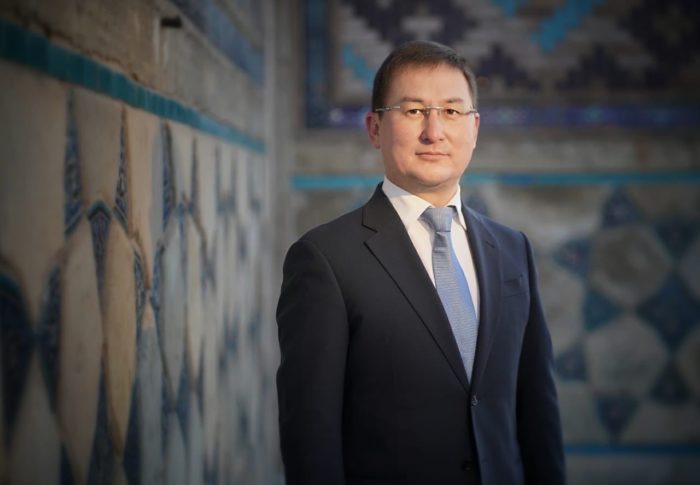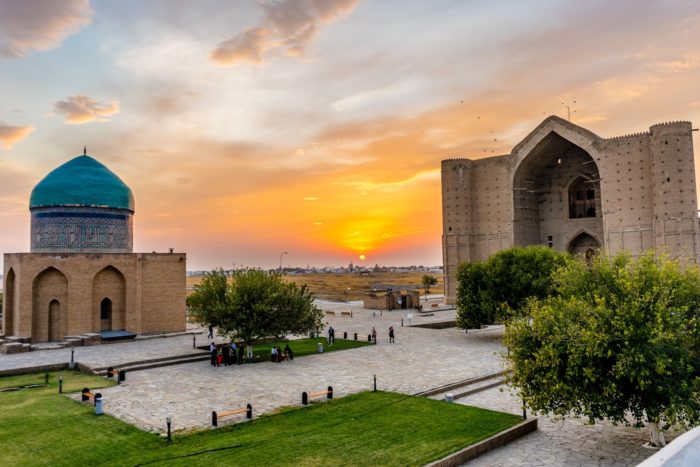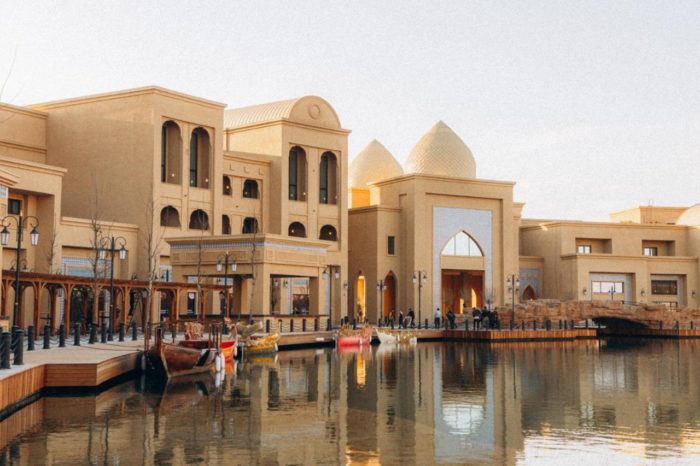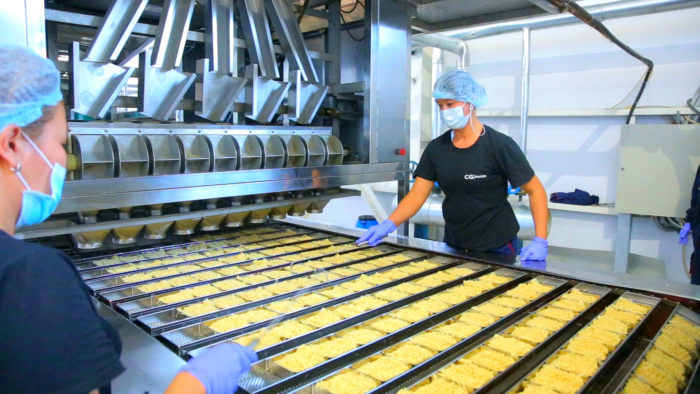NUR-SULTAN – The Turkistan region has a competitive advantage among other regions due to its favorable climate, human resources and a plethora of mineral resources, and a high potential for industry growth. Those factors allow the development of the agricultural sector, renewable energy sources, subsoil use, and tourism.

Deputy Akim (Governor) of the Turkistan Region Rashid Ayupov.
The region is also a center of attraction for tourists and Turkistan city became a megalopolis with a developed infrastructure in a very short period of time.
The decision of Kazakhstan’s First President, Nursultan Nazarbayev to create the Turkistan region in 2018 gave a powerful impetus to the economic development of the entire region and improved the investment climate.
Deputy Akim (Governor) of the Turkistan Region Rashid Ayupov spoke about the region’s investment opportunities and its tourism potential in a recent interview with The Astana Times.
The region is rich in mineral deposits of barite, coal, iron, polymetallic ores, bentonite clays, vermiculite, talcum, limestone, granite, marble, gypsum, and quartz sands. The region ranks first in the country in reserves of uranium and third in the reserves of phosphorites and iron.
The Turkistan region has deposits of polymetallic ores in the south-west slope of the Karatau ridge. The field is distinguished by a high content of iron with good enrichment. The region also has mineral resources for production of construction materials (limestone, gypsum, quartz sands, refractory ceramic and bentonite clays, mineral paints, ornamental stones, travertine).

The region is a center of attraction for tourists and Turkistan city became a megalopolis with a developed infrastructure in a very short period of time.
There are 3,900 producers of agricultural products (first place in Kazakhstan produces 18,600) and 68,900 farms (first place in Kazakhstan has 225 thousand farms). Gross output of industrial agriculture in 2020 was 726.1 billion tenge ($1.6 billion), which is third place in Kazakhstan.
Ayupov said that the status of the regional center promotes dynamic infrastructural and social development in Turkistan, which resulted in the growth of the population and an increase in the number of qualified personnel.
“More than 11 percent of the total population resides here. This is a young population with a literacy rate of over 99 percent. In 2020 the International University of Tourism and Hospitality opened its doors,” he said.
The proportion of the working age residents here is more than 47 percent of the region’s total population, which is just over two million people. This is one of the highest indicators in the country.

Keruen-Saray is the Central Asia’s largest tourist complex.
There are nine industrial zones and the largest special multifunctional economic zone that offers various investment benefits.
Ayupov noted that despite the pandemic, the main sectors of the economy show positive dynamics which have been observed over the last three years. Over the last nine months there was a growth of economic indicators in trade, agriculture, construction, investment, and small and medium-sized enterprises.
The region ranks second in GRP growth in the country. Gross regional product in the first half of 2021 amounted to 552.1 billion tenge ($1.2 billion) – an increase of 103.9 percent compared to the same period in 2020. It is predicted to reach 2.6 trillion tenge ($6 trillion) by the end of the year.
“Given the specialization of the region, active work is underway to attract investment in such fields as agriculture, tourism, renewable energy, manufacturing industry and production of construction materials,” he added.

Nine industrial zones and the largest special multifunctional economic zone that offers various investment benefits operate in the region.
According to Ayupov, the region ranked first among the regions of Kazakhstan in attracting investments. Since the creation of the region about $3.8 billion have been invested in the region and more than 100 investment projects have been implemented. Over $1.3 billion has been attracted directly to Turkistan.
“In 2018 the Comprehensive Plan for socio-economic development of the Turkistan region until 2024 was approved to accelerate the development of the region. With the support from the government, the plan has already been executed by 40 percent in the last two years and we are currently working on its completion and extension until 2025. It is planned to incorporate 139 events, including fulfillment of investment projects, development of the housing infrastructure, and providing civil protection,” he said.
Elaborating on the current projects, Ayupov noted the construction of the Artel plant that produces household appliances in special economic zones. “In October the opening of diapers production plant in Sairam district took place. In the agribusiness sector, 25 projects worth 630 billion tenge ($1.4 billion) are to be launched by 2025. One of them is a major project to build a 500-hectare greenhouse complex worth $1.2 billion.”
“There are many programs on the state and regional levels that provide extensive support to the exporters from the Turkistan region,” said Ayupov. “For example, the regional Turkistan Invest agency on investment attraction and export development created an electronic register of exporters for systematization that will help to increase export potential.”
In 2021 there were 34 applications from 19 businesses in comparison to 15 applications from 13 enterprises last year. By October, seven of them from six companies were approved for a total amount of 242.28 million tenge ($560,000).
In 2021 local exporters took part in trade and economic exhibitions held in Ekaterinburg, Kazan, Tashkent, and Turkmenistan. Participation in the exhibition in Shanghai in November is planned. Eleven more companies participated in the Export Accelerator 2021 program.
Tourism is another high-potential industry. The annual flow of tourists is 1.5 million people and in coming years it is expected to increase to five million. The largest tourist complex in Central Asia, Keruen-Saray, operates in Turkistan.
The construction of the Kaskasu ski resort and recreational center will begin in the future.
The annual flow of tourists is 1.5 million people, and it is expected to increase to five million in the future. There are six UNESCO World Heritage sites in the region, the most famous of which is Kozha-Akhmet Yassaui Mausoleum.
To unlock the tourist potential, the city of Turkistan was included in the top 10 major tourist destinations of Kazakhstan. Twenty eight investment projects aimed at developing tourism that are worth 319.8 billion tenge (~$738 million) will be implemented by 2025.

